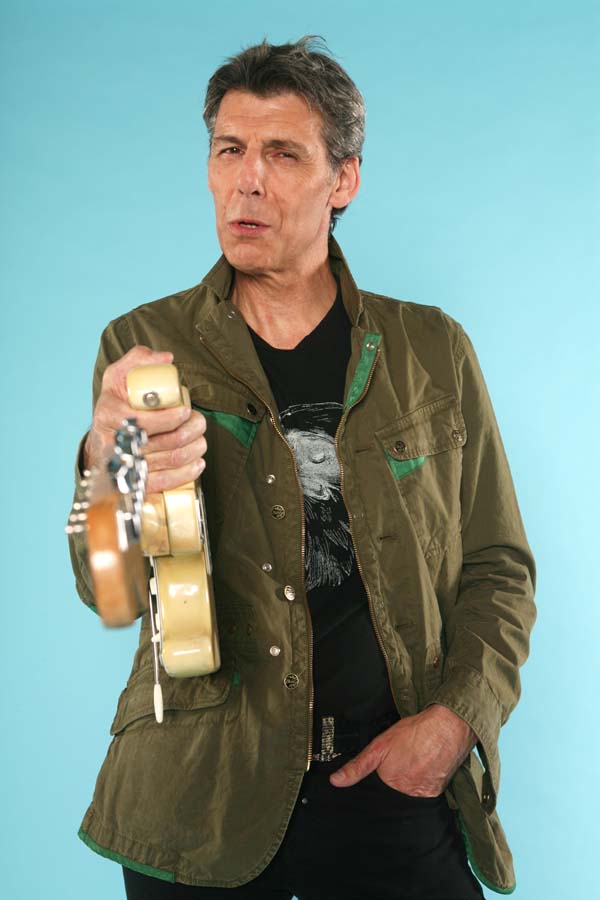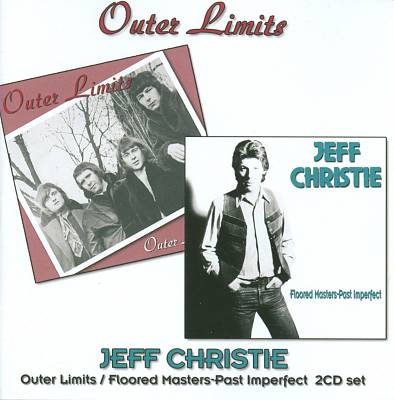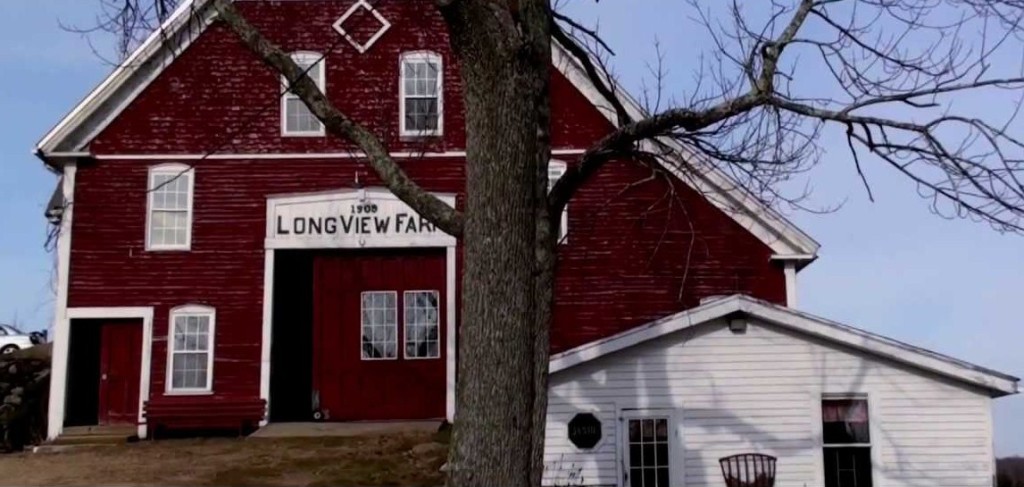It’s 45 years since Christie’s ‘Yellow River’ topped the charts around the world and it’s that country rock sound and their self-titled debut album that band leader and songwriter, Jeff Christie, is best known for. However, the long player’s follow up ‘For All Mankind’, including its title track, moved the band’s sound forward nearer towards Jeff’s British contemporaries like The Who.
‘For All Mankind’ was a heartfelt wish for peace drawing from Jeff’s Yorkshire roots, and he has just released a new version of that pivotal song. Jeff talks to Jason Barnard about its release, set against his career spanning 50 years in the music industry.
Hi Jeff, since we met over four years ago you’ve been very active. You’ve released more tracks from the Christie archives on the ‘No Turn Unstoned’ set plus you have recorded a new version of ‘For All Mankind’ with the Brighouse and Rastrick Brass Band. I’d like to focus on some of the things we didn’t get chance to cover then but first could you tell me about your new single.
When I first wrote ‘For All Mankind’ the original concept for it was with a really big brass band but I wasn’t able to record it that way. It was a peace song and I wrote it after seeing a documentary about the First World War. I wanted that evocative TV Hovis advert quality to be a sonic feature in the song. It’s a very Northern thing, the cobblestone streets, the fog, the flat caps, the pubs. I grew up in that kind of environment and I’m a product of the north. When I was a kid brass bands fascinated me. When I was 5 or 6 I used to stand at the bandstand at Roundhay Park in Leeds. My mum used to have to pull me away as I was just mesmerized by the sound. So to finally record the track with a brass band is something I’ve always wanted to do.
Which takes us back to your early years; your first success was with ‘Just One More Chance’ released by your band the Outer Limits. However I didn’t know that the song got taken over to the States. There’s a West Coast version by The Hondells where there’s little link with ‘Yellow River’.
The Hondells were a Beach Boys type five piece harmony group and Glenn Campbell was in them, I think in the early 60s. When Glenn Campbell broke through in around 1969 it was with ‘Galveston’ which influenced me. ‘Galveston’ like ‘Wichita Lineman’, ‘By the Time I Get to Phoenix’ were all Jimmy Webb songs. I was a massive Jimmy Webb fan. In this period I was writing a lot. I’d had a few records out, ‘Just One More Chance’ and ‘Great Train Robbery’. The band that I was in, The Outer Limits had broken up so for a couple of years I really concentrated on writing. ‘Galveston’ just had that magic.
From being inspired by that song I wrote ‘Yellow River’ which again was to do with the American Civil War, a similar sort of theme. I met Jimmy Webb backstage in York when he was doing an unplugged tour. I told him ‘I’ve been a massive fan for years and you probably don’t know this but ‘Galveston’ was the song that inspired me to write ‘Yellow River’ ’. He raised his eyebrows in surprise, we shook hands and had our photo taken. It was a lovely moment.
The Hondells version of ‘Just One More Chance’ is really nice.
Yes, it’s lovely in the sense that I’ve always loved close harmony and barbershop.
There was another competing version of ‘Just One More Chance’ over on the East Coast of the States.
Yes, The Hondells were on the West Coast and over on the East Coast there was a band called The Patrick Bradley. I hadn’t heard of them at the time but apparently The Patrick Bradley were quite well known in their side of the US. The A-side was a vocal version of ‘Just One More Chance’ and the B-side was just an instrumental. There version was a bit more edgy, as you’d expect from New York.
I think their instrumental version works better as I’m not sure about the vocals on the A-side. The instrumental was played on the Northern Soul circuit.
That’s right. I was with RK records in the late 70s and they were kind of affiliated with Wigan Casino. One of the people at Wigan Casino was Mike Walker and he used to play with the St Louis Union in the 60s. He told me ‘Just One More Chance’ is a big song at Wigan Casino.’ It would get the tag ‘blue eyed soul’ but that’s very different to me than the Northern Soul classics. I love Northern Soul which was a lot of Motown gems that weren’t main stream. How that song fitted in there I’ll never know. It’s always puzzled me but the guy was on was on site, so to speak and that’s what he said.
You mentioned The Outer Limits. When we last spoke you said playing ‘Sweet Freedom’ live was pivotal in encouraging your songwriting.
When we were on the Hendrix tour we had about a 10 minute spot as the spots were ridiculously short in those days. The Move would get 15 to 20 minutes topside. Pink Floyd would get half an hour and Jimi would get 40 minutes. It was a very fast turnaround. Despite writing our records, up until that time we were doing a lot of covers live, Motown stuff, making a decent fist of it. But I’d got the writing bug and I wanted to pursue playing my own songs live.
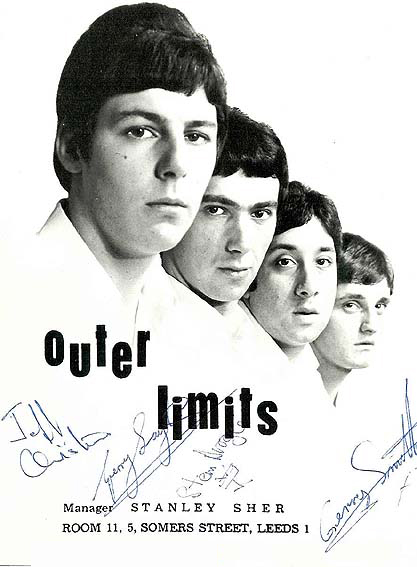 On the tour we were playing things like ‘Reach Out I’ll Be There’ and one day I decided to stick ‘Sweet Freedom’ in as that was a punchy track. It got quite a good reception. Lee Jackson from The Nice came up to me afterwards and said ‘What was that song you played, the fourth number down? I don’t recognise that song, it wasn’t the usual Motown song.’ I said ‘That’s one of mine. It’s called ‘Sweet Freedom’. He said ‘That’s a good song. That’s what you should play, not other peoples’ stuff.’ The Nice broke through shortly after that tour and became huge. That endorsement is sometimes what you need. A little nudge on your shoulder to say ‘That’s great. You should do that.’
On the tour we were playing things like ‘Reach Out I’ll Be There’ and one day I decided to stick ‘Sweet Freedom’ in as that was a punchy track. It got quite a good reception. Lee Jackson from The Nice came up to me afterwards and said ‘What was that song you played, the fourth number down? I don’t recognise that song, it wasn’t the usual Motown song.’ I said ‘That’s one of mine. It’s called ‘Sweet Freedom’. He said ‘That’s a good song. That’s what you should play, not other peoples’ stuff.’ The Nice broke through shortly after that tour and became huge. That endorsement is sometimes what you need. A little nudge on your shoulder to say ‘That’s great. You should do that.’
We came off that tour with a lot of confidence as it was a real learning curve even though the band had been playing a lot in clubs around the country. The discipline of the tour and working with Hendrix was something else. The Move were a great band. I didn’t really like Pink Floyd at the time as they admitted that it was the lights that they were about. The music was secondary. They had a couple of commercial songs ‘Arnold Layne’ and ‘See Emily Play’ but Syd was completely out of it. They say that was the tour he went mad on. But we learned a lot and it gave me the confidence to go forward and do what I wanted. In many ways that was a starting point.
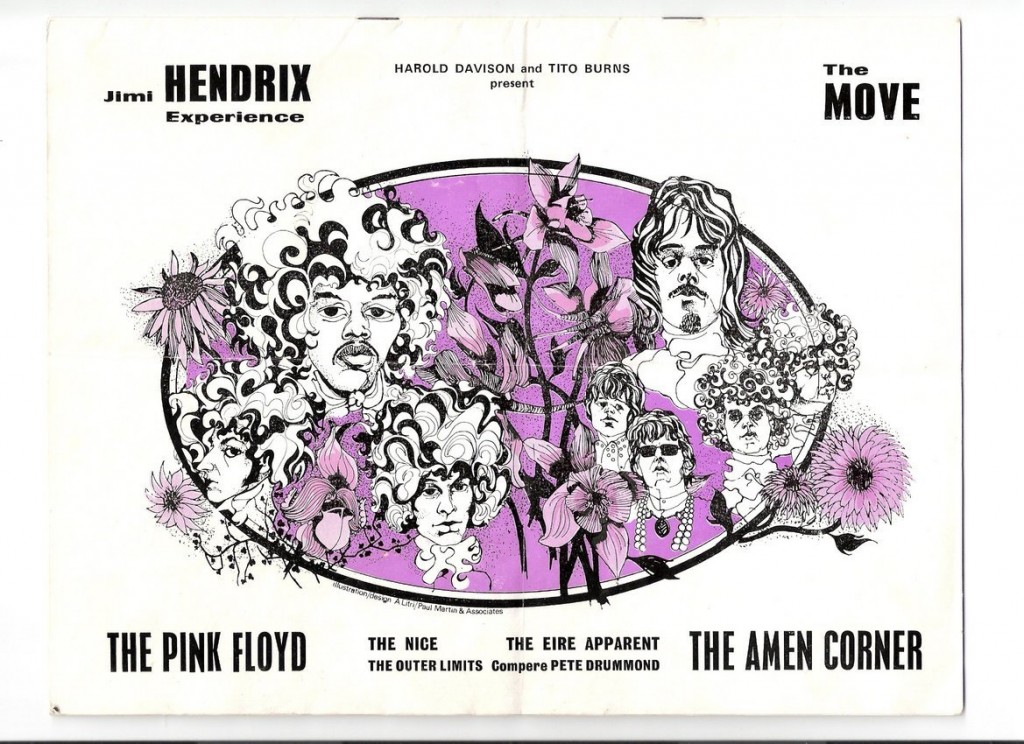
The A-side of The Outer Limits ‘Sweet Freedom’ was ‘Great Train Robbery’. Over the past few years a demo version of ‘Great Train Robbery’ by The Searchers has been discovered. Has that ever been released or is it just acetate only?
Somebody had sent it to my website. It’s a bit of a mystery and I wasn’t aware of this at all. My website manager Ray Chan said ‘Have you heard this?’ I said ‘No, I haven’t.’ I was absolutely dumbfounded because it was pretty much exactly the same as our version minus the strings. It must have been 68 or 69 and I think they were starting to tail. This is before ‘Yellow River’ and I hadn’t really happened. They must have been trawling for songs and came across that and thought ‘This is a possible contender so we’ll demo it.’ That was the only stage it really got to. But the fact that The Searchers, who are a seminal name from the 60s, did the song is an accreditation from your peer group.
Many of your demos with The Outer Limits were released on the ‘Outer Limits / Floored Masters – Past Imperfect’ collection. One of the highlights is ‘Mr Magee’s Incredible Banjo Band’.
Yes, there’s something about the song. We did that in this little studio in Huddersfield where we used to go and record. The guy there, Matt, was a German refugee and became the founder of Orange Amps. Marshall ruled the waves but there were other amps that came through and Orange Amps was one of them and was very respected. Matt was always into electronics and recording and we used to record a lot over there. It was still primitive, I think it was a two track and you’d bounce and bounce and lose lots of quality. In those days we’d have to whack them down very quickly. But as a songwriter I was finding my feet, like a kid in a toy shop I wanted to try everything.
So ‘Mr Magee’ was one of the many forays into different styles of writing.
Yes, I imagined that with a banjo band. There were these little movies in my head and I wanted to create these soundscapes. I’d let my imagination wander into these areas. With ‘Mr Magee’ I imagined this great banjo band from another time and a kid hero worships Mr Magee who came from a long line of banjo players. It was a little story.
You have even more tracks that haven’t been released at all like ‘Thru The Looking Glass’.
There are a lot of songs like that around in very raw demos that I did on just a Grundig tape recorder. I value them a lot because they were quite intricate little songs where I was trying to get something fresh across. But all these things were just notepads, that’s all they really were. These were songs that I wanted to take into a higher grade studio at a later date, fine tune, experiment with and polish. The whole point was when I broke through with the hits in 1970, I hoped that would free me up to really indulge and take these songs forward. That was probably a bit naive of me because it’s very difficult to take the record buying public and the record company with you; unless you are someone like Bowie or The Beatles who have such an amazing charisma.
You’ve got the freedom if you’re one of those artists.
Yes. In the period I wrote ‘Yellow River’ I was hooked on to that swamp rock, country rock stuff. I’d been listening to people like Tony Joe White, Joe South, Jerry Reed and then Creedence Clearwater Revival broke through. But that was one phase of my writing in a vein that hit the jackpot for me. So everybody thought that that was what I was about. But it was just a part of what I was about musically and lyrically.
With ‘Yellow River’ being so massive the pressure to do Mk 2, Mk 3, Mk 4 was too intense and too much for me and I just had to go with that flow for some time.
Elton John recorded ‘Yellow River’ around that period for one of those covers albums. However more recently REM released a version. That’s some tribute coming from one the world’s biggest bands at the time.
I was astonished when I found out. I remember reading about Mike Mills saying ‘This was one of our favourite songs when we were growing up and we always love to play it.’ That was fantastic to get acknowledgment from a band like that. Then you get someone like Doyle Lawson and Quicksilver.
The country version.
Yeah, it’s unbelievable. Doyle Lawson and Quicksilver are just the most unbelievable bluegrass band. It’s extraordinary, fiddles, banjos and unbelievably fast guitar picking. An absolute joy. It just really shows you what I unwittingly unleashed there. Here was a song that somehow tapped into so many musicians repertoire across the world as well as people that took it to their hearts and bought it. I knew I had a strong song there at the time but I had no idea that it would have that far reaching consequence, 45 years later. It’s kind of become a classic hasn’t it?
Absolutely. Talking about the range of artists who’ve done your material there’s a Swedish punk band called the Satanic Surfers who covered ‘San Bernadino’.
When I heard about that one I was blown away because they were kids. They did two songs, ‘Gotta Be Free’ was the other one which was from the first album as well. When I heard it, it was a real punk thrasher. I was speechless that someone could do that to one of my songs. They made it in such a way that it had credibility. I would never in a million years do it like that as I saw it in a more traditional mode. But it just shows you that these kids look at these songs and what a different approach they’ve got to it. It’s really a blast, it’s a real complement.
You mentioned that Christie got pigeonholed in that country rock sound but the second Christie album is my favourite. I particularly like ‘Picture Painter’ which has a harder sound. When we last spoke you said it was your homage to The Creation and ‘Painter Man’.
Absolutely. I played with The Creation at Leeds University in the mid 60s sometime. I played with so many great bands like The London Birds that Ronnie Wood was in. In those days there were small clubs, you didn’t have any arenas. I guess the biggest gig you had in the country was the Albert Hall. You had the Town Hall and Queens Hall in Leeds and all the big bands would come. Leeds Uni was great and we were playing there a lot as support. I remember watching Cream at the side of the Refectory. It was just a magic time.
I was getting this amazing stimulus and was writing two or three songs a week. The Creation, like The Who, had this very powerful dynamic. I listened to them again recently and they were so raw. When I wrote ‘Picture Painter’ it must have been more than subliminal. That’s what I do. If I really love something I’ll try and deliver my take on it. Hopefully I will try and make it not too obvious or blatant and not copy it.
Also from ‘For All Mankind’ is ‘If Only’ which is more reflective.
At the time I had this girlfriend in Copenhagen and I was in Kensington in London. This was around 1971. So she was over there and I was in London. The next day I was going over to South America on tour and I was just taking stock of my life and was writing. I was going here, there and everywhere and I couldn’t really put down roots. I’d had this relationship with this girl and we’d got together a few times. I just thought ‘If only you were not so far away.’ Of course Denmark isn’t that far but it felt like it because of the schedules that we had. Trying to get downtime was difficult. We were one of the most heavily toured bands, all around the world. ‘Yellow River’ got to number one in 26 countries apart from the UK and where it wasn’t number one it was top 10. There was phenomenal demand to go to these places. I was just living out of a suitcase. ‘If Only’ wasn’t just about not being with somebody you wanted to be with it was also about the distance between fame and ordinary life. I’d forgotten what it was like to have free time and go places. Just being normal again.
We were a world touring band. We did play the UK a lot but we were playing to 20 thousand people in South America in football stadiums. We didn’t have those gigs over here. So we’d get these incredible offers to go to these exotic places like Mexico. Poland even although that was really grim as it was still a Communist country. Africa ended up being a bit of a downer as we got into riots over there. There’s a whole other story about that.
You got stuck.
We got stuck and that was the start of the end of the band as we lost such a lot of money over there. But we really did see the world.
You mentioned Christie losing momentum and getting stuck in Africa but you carried on writing songs and recording demos. When I got a copy of your second collection of unreleased material ‘No Turn Unstoned’, the song ‘Heaven Knows’ stood out for me. It’s a really fantastic song and I’m staggered it wasn’t released at the time.
It’s really odd that you picked that one out because that was very much a quirky thing of my own. It was a little bit of a homage to Carmen. Carmen took my drummer Paul Fenton, my road manager Skippy and my manager as well. Paul’s from Dewsbury and we’d played in clubs together in the 60s in Leeds. I brought him into my band in late 70, he stayed a couple of years, he met Carmen and that was it. He had to go with them.
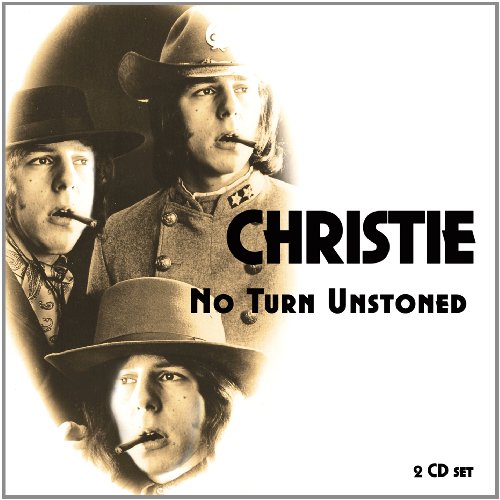
Carmen were unique. They were doing this flamenco rock thing and had genuine flamenco roots. I had always been crazy about flamenco as a kid, in fact I wanted to learn flamenco when I first picked up the guitar when I was about 11, 12. But I couldn’t find a flamenco teacher and the nearest that came through then was rock and roll. It was Elvis, Buddy Holly and the guitar. That was it.
So I was friendly with the guys in Carmen and they used to come to my house and I played on two or three of their tracks on their last album. I spent a lot of time with them in this studio in Boston, a farm in North Brookfield. I did about four tracks there and they were all magical. On them were John Glascock, a very dear friend who was in Carmen and then went to Jethro Tull. So Paul, John and me put down the rhythm track. I was on piano, Paul on drums and John was on bass. Then I just built the tracks up with other instruments and vocals. John tragically died young a few years later.
‘Heaven Knows’ was recorded in 1976/77. It’s a strange song because the time signature is quite complex. It’s not rock and roll, there were flamenco rhythms in it which I’d learned from Carmen. Again it had this very melancholy feel to it with the euphonium.
I was trying to get that same sort of feeling of melancholy. It’s a little bit darker but I like that kind of stuff. The funny thing about ‘Yellow River’ and some of these songs is that they are optimistic but I don’t really do jolly happy stuff. I don’t think a lot of people get ‘Heaven Knows’. It’s quite an unusual song.
Another great track from ‘No Turn Unstoned’ is ‘Tonight’.
Again, that was done at the farm at North Brookfield . Again, Paul and John were on it. I built that track up and did a lot of the guitar work on it. I remember the accordion on it. We had these two guys that were chefs there from New York and we brought them into the studio. They were on the floor on the side of the accordion on the squeezebox and I was playing the notes of the accordion as I don’t really play it properly. We tracked it up and we got a lovely French boulevard accordion sound. For me it was a bit of a Bee Gees type song.
You also mentioned ‘Turning To Stone’ that’s also from this period. That’s a fantastic track. It feels autobiographical.
It was a magic track from the farm. John and Angela from Carmen and Bobby, who was their dancer and singer, did amazing backup vocals. A lot of my songs are autobiographical apart from the obvious ones which are fantasy or me projecting. It was a time my father was very, very ill and it was making me very introspective. I was trying to deal with loss. Without getting too deep life is about getting to terms with loss because it’s one loss after another. Loss of youth, your spouse and so on. Of course if you are a songwriter it’s going to channel its way into a song. That’s how I would express myself. There’s a lot of melancholy in my songs and I’m quite comfortable with that.
That’s from your ‘Outer Limits, Past Masters’ CD. Also on it were your releases from the late 70s and early 80s. ‘Turn On Your Lovelight’ has a catchy commercial edge.
It’s the B-side of ‘Both Ends of the Rainbow’ and is a funky, rocky track. Again Paul’s on it on drums. Paul and I had a good friend called Teddy Platt who’s also sadly passed. But Teddy was featured a lot on that album as Paul was. Ted was a very gifted musician and guitar player who brought a lot to the table and I used him whenever I could. A lot of those sessions it was Paul on drums, Ted on guitar, me on piano and bass. I’d build the track up from there having started with a really great foundation. The three of us together were really tight and it was a great experience working together.
I did the album over a two year period and it cost me a fortune going down to London and staying in hotels. But it was a labour of love and they gave me freedom in the studio there. I was very lucky that the producer, Barry Kingston, loved what I was doing and threw himself into the production of it. It was a big disappointment to me that the record company went down in the recession. They were kind of stuck and punk was still kind of controlling things. It was the period 1980/81. I tried to get a major interested but the majors by this time didn’t know where I would fit. The stuff that I was doing was so diverse. There was a disco track on there ‘Midnight Express’ and then you get a song like ‘Troubadour’ which I wrote for Elton John. Of course it’s pointless writing for Elton John as he writes his own songs. You wouldn’t start off writing for the artist but maybe it’s subliminal, you think 10 or 15 bars in ‘That sounds like so and so could do this.’ And you’d develop it. But it was a great experience for me and I did some of my best work. I’m very proud of those tracks.
To finish I must go back to your new single. So it is finally, after all those many years, the version of ‘For All Mankind’ that you always wanted to make. It is one of your best songs so it’s great to hear you are releasing it the way you always wanted to hear it.
Yes, that’s it in a nutshell. It’s taken 43 years to do this the way I wanted to do it. ‘For All Mankind’ again, is a real heartfelt song. As I mentioned at the start when I first wrote that in 1971 I wanted to do it with a brass band. I loved all those brass bands, Black Dyke Mills, Brighouse and Rastrick and wanted to do it with a band but I couldn’t. It the time I was recording that album and the track there was no way that CBS were going to pay for a brass band. We put that album down very quickly. We did a good job, kept it tight, very live. There was hardly any tracking on that album.
But that was a song, the same with ‘If Only’, that needed a bigger panoramic musical vista to it. I wanted to use a Hammond organ on both tracks and I always thought that I’d like to do something like ‘Whiter Shade of Pale’. That kind of feel. Now we couldn’t get a Hammond organ for the session in Bond Street, CBS, but what they did have at the studio was an ancient harmonium. It’s a beautiful instrument and you have to pump it with you feet and can hear the pedals squeaking. If you listen on the original ‘For All Mankind’ and ‘If Only’ there’s a gap between the notes. As your feet are punching the pedals up and down the density of the notes shift and gets a bit faint. So you’re really pumping away like mad. I was exhausted at the end of the take. But it’s an amazing sound and it leant a lot of atmosphere. That was as far as I could get in creating some sort of atmosphere.
But I was always frustrated that ‘For All Mankind’ didn’t get its justice in terms of production. I’ve often thought that some of my songs have suffered from that. I haven’t often had the benefit of a great producer who can say ‘Let’s have an orchestra here or a brass section for example’. Andrew Oldham put an orchestra on ‘Great Train Robbery’ so it’s happened just once or twice. There were a lot of people in the business at the time who felt that ‘For All Mankind’ was a powerful song. But nobody at the end of the day would cough up for those extras, and I don’t mean drugs, booze and hookers!!
Jason Barnard and Jeff Christie
About 18 months ago my brother Lester mentioned he had a contact in Bradford with Brighouse and Rastrick, and I’d been talking for a few years about wanting to do redo the song. I then got in touch with B & R’s David King, a guy from Australia, who is a young, charismatic, dynamic conductor with them. He came back almost immediately and was really enthusiastic about it; he got it straight away. He said ‘I see what you mean, this will be great for the band. I’ll do everything I can to help you get this done with the full band.’
I’ve got it about as close as I originally conceived it by bringing in the brass to give it that rich chording; the blend of the brass with the Hammond organ, the guitar work. I still have visions of sending it to people like Rod Stewart, as for me the song is king. It doesn’t matter who sings it, I’ve just always wanted to get my songs out there.
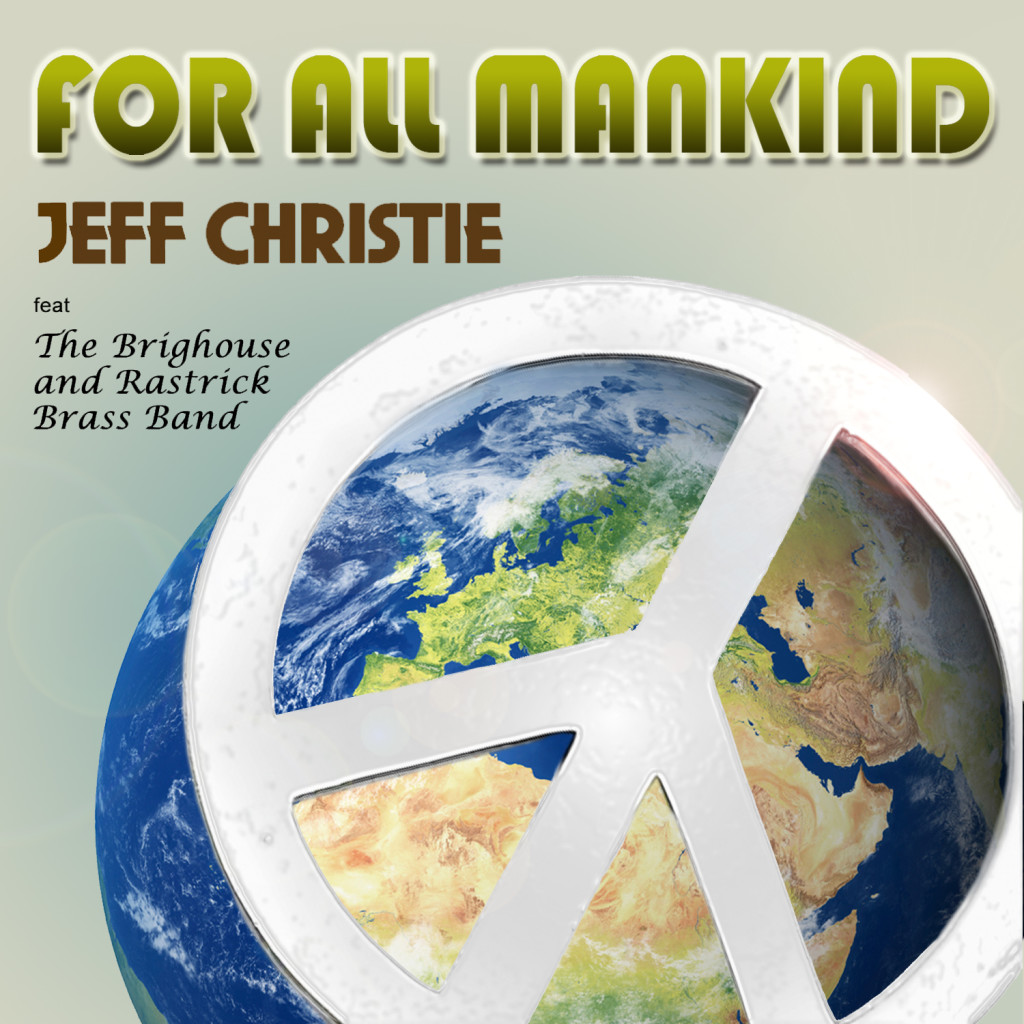
So this song has a new lease of life. I don’t know whether people will sit up and take notice. It’s a different business now to what it was. It will go out digitally on iTunes, Amazon and all those digital platforms. Whatever happens I’ve got the satisfaction of realizing it the way I envisaged it originally way back in the last century! I’m proud of that.
And when’s it due out?
It’s supposed to be in the digital shops by the 21st January. That’s what we are gunning for.
And people can get updates and more information on your career on the website administered by Ray Chan.
Yes, Ray does a great job. I’m in contact with him all the time and you can always get the latest news there. The website is http://www.yellowriver.0catch.com/
Thank you Jeff today. We’ve certainly talked about a lot of topics we didn’t cover last time. It’s been truly a pleasure.
Mine too Jason.
Jeff’s excellent new version of ‘For All Mankind’ is out now via Amazon and all other good digital music stores.
The audio version of this interview, with selected tracks related to Jeff’s career is also available:
http://thestrangebrew.co.uk/http:/thestrangebrew.co.uk/jeff-christie
My original interview with Jeff can also still be found on The Strange Brew:
http://thestrangebrew.co.uk/articles/jeff-christie-and-the-outer-limits
http://thestrangebrew.co.uk/articles/jeff-christie-christie-and-beyond
Photos used with kind permission of Jeff Christie and Ray Chan. Copyright © Jason Barnard and Jeff Christie 2015. All Rights Reserved. No part of this article may be reproduced without the permission of the authors.
